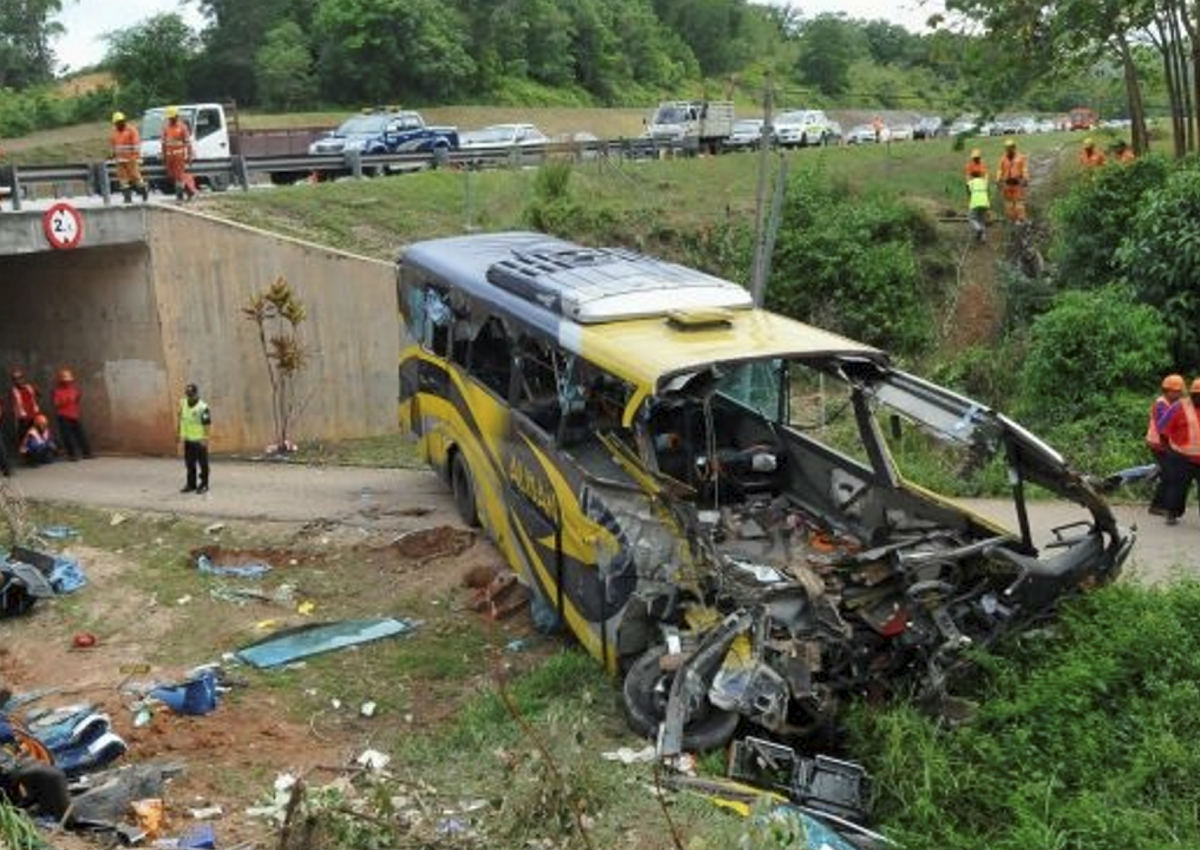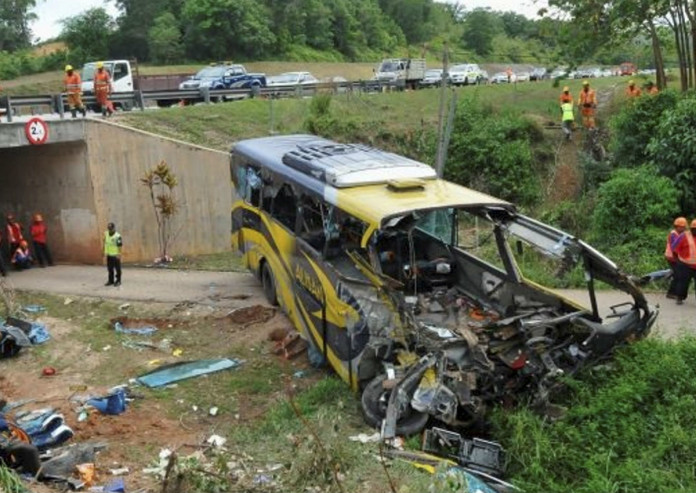The use of seat belts on fast buses can save passengers’ lives, experts here say, responding to calls in Malaysia and making them mandatory.
This is a terrible accident, a Kuala Lumpur Express passenger train from Johor Bahru, crashed a ravine on a north-south freeway near Muar, Johor, killing 14 people, including three Singaporeans and one Singapore residents.
Mr Azman Ujang, chairman of the Malaysian national news agency Bernama, then proposed to prohibit the express train from traveling in “difficult times” and to develop seat belts for passengers to prevent similar traffic accidents.
Welcoming these suggestions, the Director of the Malaysian Road Transport Division, Mr Nadzri Siron, suggested that bus companies could take the initiative to install seat belts for passengers.
But he said operators and consumers are opposed to the previous proposal to ban night express.
“It’s a good idea to force a seat belt on an express train,” Bernard, chairman of the Singapore Road Safety Council, told the paper. “It’s a good idea to save a lot of people in an accident.”
“When there is an impact, the seat belt prevents passengers from hitting hard objects or being thrown,” he said.
“Over the years, many studies have shown that seat belts can reduce the car’s passenger injuries, the coach is also true.
Speaking of compulsory seat belts in school buses in 2012, he said: “Even if the kids have to wear seat belts on buses in short distances, you can see the importance, which can also be applied to coaches.”
“Anything that raises safety is a good idea,” says Gopinath Menon, a transportation engineering consultant.
“With a seat belt, you will be thrown out of the probability will be reduced, such constraints will reduce the harm.”
But he said the implementation could be challenging.
“It applies to schoolchildren because it’s easier to implement, but all buses need a seatbelt at what distance? It opens a whole range of questions,” Mr. Menon said.
Mr Ang Hin Kee, Vice Chairman of the Transport Committee of the Government Parliament, told the TNP that measures to prevent accidents could also be considered.
BEYOND SEAT BELTS
Safety features such as the lane departure warning system, which alerts drivers if they suddenly change lanes without signalling, go beyond seat belts, Mr Ang said.
He added: “Seat belts are useful if you get into a collision. But minimising accidents is just as important, and we should assess all the safety concerns.”
Madam Sarina Moh, a retiree in her 70s who makes annual trips to Kuala Lumpur to visit relatives, said the accident has heightened her concerns about travelling on express buses.
She said: “I used to use them without worry, but now I would be too scared to fall asleep.”
Asked if being belted down would make her feel better, Madam Sarina said: “It won’t hurt. Maybe it can encourage people to be safer on the roads.”
harizbah@sph.com.sg

This article was first published on December 27, 2016.
Get The New Paper for more stories.







